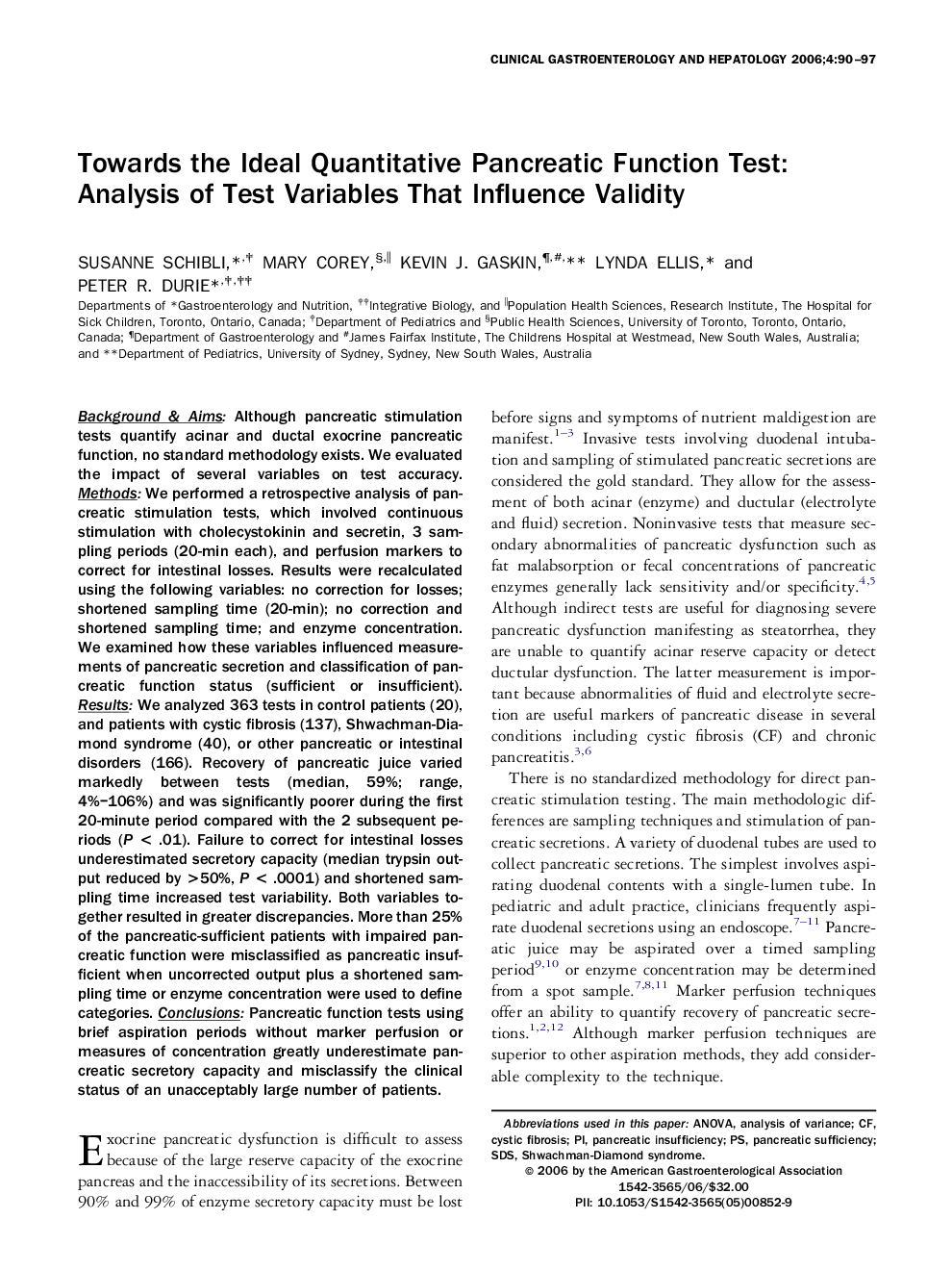| Article ID | Journal | Published Year | Pages | File Type |
|---|---|---|---|---|
| 3285697 | Clinical Gastroenterology and Hepatology | 2006 | 8 Pages |
Abstract
Background & Aims: Although pancreatic stimulation tests quantify acinar and ductal exocrine pancreatic function, no standard methodology exists. We evaluated the impact of several variables on test accuracy. Methods: We performed a retrospective analysis of pancreatic stimulation tests, which involved continuous stimulation with cholecystokinin and secretin, 3 sampling periods (20-min each), and perfusion markers to correct for intestinal losses. Results were recalculated using the following variables: no correction for losses; shortened sampling time (20-min); no correction and shortened sampling time; and enzyme concentration. We examined how these variables influenced measurements of pancreatic secretion and classification of pancreatic function status (sufficient or insufficient). Results: We analyzed 363 tests in control patients (20), and patients with cystic fibrosis (137), Shwachman-Diamond syndrome (40), or other pancreatic or intestinal disorders (166). Recovery of pancreatic juice varied markedly between tests (median, 59%; range, 4%-106%) and was significantly poorer during the first 20-minute period compared with the 2 subsequent periods (P < .01). Failure to correct for intestinal losses underestimated secretory capacity (median trypsin output reduced by >50%, P < .0001) and shortened sampling time increased test variability. Both variables together resulted in greater discrepancies. More than 25% of the pancreatic-sufficient patients with impaired pancreatic function were misclassified as pancreatic insufficient when uncorrected output plus a shortened sampling time or enzyme concentration were used to define categories. Conclusions: Pancreatic function tests using brief aspiration periods without marker perfusion or measures of concentration greatly underestimate pancreatic secretory capacity and misclassify the clinical status of an unacceptably large number of patients.
Keywords
Related Topics
Health Sciences
Medicine and Dentistry
Gastroenterology
Authors
Susanne Schibli, Mary Corey, Kevin J. Gaskin, Lynda Ellis, Peter R. Durie,
